North of the equator moving clockwise means moving from left to
right with the Sun - i.e. looking south - whereas south
of the equator the Sun will be perceived to move
counterclockwise from east to west (when looking north towards
the equator). When
Makoi made his one-day cycle around the island he moved clockwise
withershins.
Before Makoi went to Rano Raraku (29) he therefore
had visited Tongariki (28), not far from Hanga Takaure:
... The brothers had no idea what Maui was up
to now, as he paid out his line. Down, down it sank, and when it
was at the bottom Maui lifted it slightly, and it caught on
something which at once pulled very hard. Maui pulled also, and
hauled in a little of his line. The canoe heeled over, and was
shipping water fast. 'Let it go!' cried the frightened brothers,
but Maui answered with the words that are now a proverb: 'What
Maui has got in his hand he cannot throw away.' 'Let go?' he
cried. 'What did I come for but to catch fish?' And he went on
hauling in his line, the canoe kept taking water, and his
brothers kept bailing frantically, but Maui would not let go.
Now Maui's hook had caught in the barge-boards of the house of
Tonganui, who lived at the bottom of that part of the sea and
whose name means Great South; for it was as far to the south
that the brothers had paddled from their home. And Maui knew
what it was that he had caught, and while he hauled at his line
he was chanting the spell that goes: O Tonganui / why do you
hold so stubbornly there below? // The power of Muri's jawbone
is at work on you, / you are coming, / you are caught now, / you
are coming up, / appear, appear. // Shake yourself, / grandson
of Tangaroa the little. The fish came near the surface then, so
that Maui's line was slack for a moment, and he shouted to it
not to get tangled. But then the fish plunged down again, all
the way to the bottom. And Maui had to strain, and haul away
again. And at the height of all this excitement his belt worked
loose, and his maro fell off and he had to kick it from
his feet. He had to do the rest with nothing on ...
.jpg)
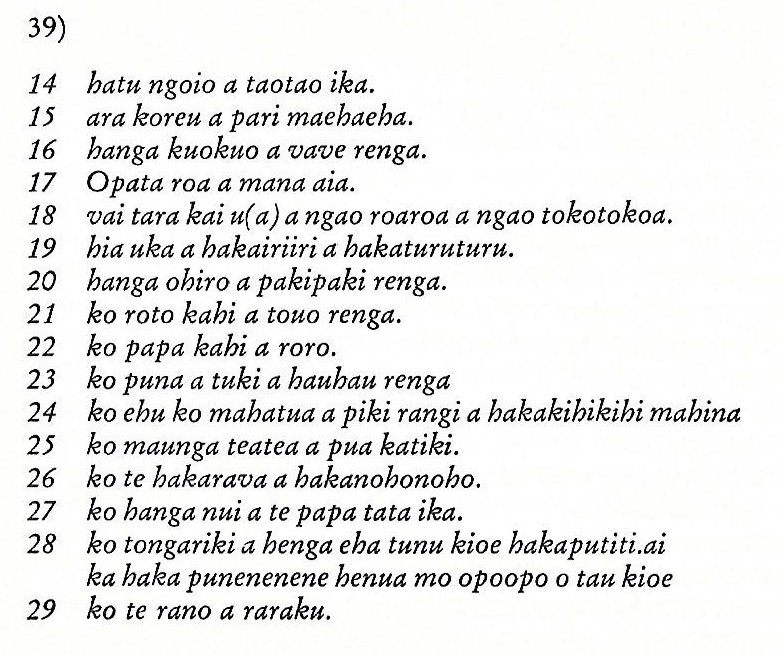

| 28
ko tongariki a henga eha
tunu kioe hakaputiti.ai
Hega. Hegahega, reddish, ruddy.
Hehega, to dawn; ki hehega mai te
raá, when the sun rises. Vanaga.
Hehegaraa, sunrise. PS Sa.: sesega,
to be dazzled as by the sun. Fu.: sega,
the beginning of daybreak. Niuē:
hegahega,
the red light or rays at sunset. Viti:
sesē,
to dawn. Churchill.
Kiore. Rat. Vanaga. Rat, mouse;
kiore hiva, rabbit. P Pau., Mgv.:
kiore, rat, mouse. Mq.: kioē,
íoé,
id. Ta.: iore,
id. Churchill.
Ti.
1. Liliacea (Cordyline
fruticosa); its long, thick root, cooked
in the earth oven, is deliciously sweet. 2.
To bend down to allow someone to climb on
one's back to be carried (haha);
he-ti-atu a Kaiga i te tua ivi, he-haha-mai
Huri Avai, Kaiga bent his back and Huri
Avai climbed on his shoulders. Vanaga. 1.
Dracæna. P
Mgv., Mq., Ta.: ti,
id. 2. Tea. Churchill.
ka
haka punenenene
henua mo opoopo o tau
kioe
Presumably tau kioe referred to the
season of the 'Dark Water Rat':
... In China, with
Capricornus, Pisces, and a part of
Sagittarius, it [Aquarius] constituted the
early Serpent, or Turtle, Tien Yuen;
and later was known as Hiuen Ying,
the Dark Warrior and Hero, or Darkly
Flourishing One, the Hiuen Wu, or
Hiuen Heaou, of the Han dynasty, which
Dupuis gave
as Hiven
Mao. It was a symbol of the emperor
Tchoun Hin, in whose reign was a great
deluge; but after the Jesuits came in it
became Paou Ping, the Precious Vase.
It contained three of the sieu, and headed
the list of zodiac signs as the Rat,
which in the far East was the ideograph for
'water', and still so remains in the
almanacs of Central Asia, Cochin China, and
Japan ...
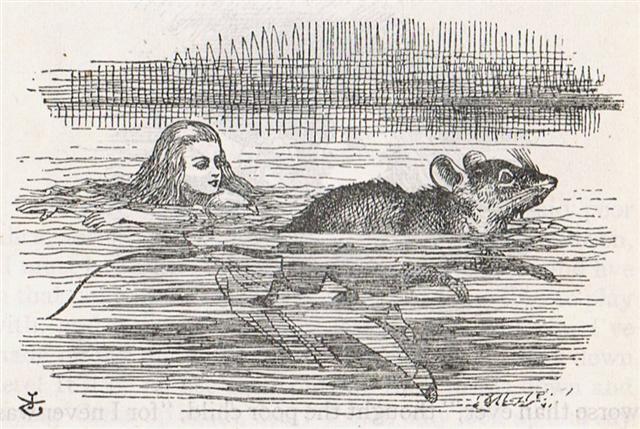
|
December solstice |
|
8 |
South Dipper |
φ Sagittarii (?) |
Unicorn |
(284.0) |
Dec 30 (364) |
|
9 |
Ox / Herd Boy |
β Capricornii (Dabih) |
Buffalo |
(308.0) |
Jan 23 (388) |
|
10 |
Girl |
ε Aquarii (Albali) |
Bat |
(314.8) |
Jan 29 (394) |
|
11 |
Emptiness |
β Aquarii (Sadalsud) |
Rat |
(325.9) |
Feb 9 (405) |
|
12 |
Rooftop |
α Aquarii (Sadalmelik) |
Swallow |
(334.6) |
Feb
18 (414) |
|
13 |
House |
α Pegasi (Markab) |
Pig |
(349.5) |
Mar 5 (429) |
|
March equinox |
|
| 29 ko
te rano a raraku.
Rano.
Volcano; crater and lake of a volcano;
i-agataiahi i-hopu-ai i te rano,
yesterday I bathed in the lake of the
volcano. Vanaga. In Nuclear Polynesian the
sense is specialized, the waters of birth
being recorded in Samoa and Futuna, and in
every case the word refers to the rinsing
off of sea water. To wash away the salt
water is not only for appearance sake in the
tropical Pacific. The sea has a high degree
of salinity and the salt crystals are not
only the clearly visible signs of an unkempt
habit when they glisten upon the brown
skins, but they are uncomfortable as well.
This use stamps upon lanu a sense in
which the fact that it is fresh water is
more prominent than the water sense.
Churchill 2.
Rara.
Mgv.: a branch of a tree. Ta.: rara,
id. Mq.: rara, small branches. Sa.:
lala, id. Ma.: rara, id.
Churchill.
"The famous mountain of sculptors'
workshops is given the name 'the crater
(lake)' and the personal addition Raraku -
'to scratch (earth)' - wordplay for the
unearthing of the quarries?..." (The
Eighth Island) |
But in the rongorongo texts time runs from left to right
as the Sun moves during the days north of the equator (or as the
Moon moves across the sky in the nights south of the equator) and therefore Hanga Takaure
had to come after Rano Raraku.
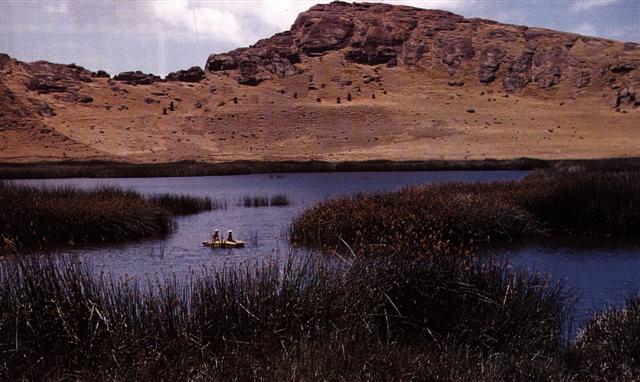
Central 'water rats' (kiore) appear in the C text around the
station of Hanga Takaure and in Cb6-1 (at the Chinese
Rat) we will recognize the same type of sign as in
Cb9-1:
 |
84 |
 |
|
Cb6-1 (116 =
4 * 29) |
Cb9-1
(593 → 59 * 3 = 177) |
| E haga o tere
hia - te manu |
manu gutu
pao hia - tagata |
te marama |
 |
 |
 |
 |
|
Cb6-1 (508 =
392 + 116) |
Cb6-2 |
Cb6-3 (118 =
4 * 29½) |
Cb6-4 |
|
CLOSE TO THE
FULL MOON: |
|
Star-25 (Horse) /
ANA-HEU-HEU-PO-5 (Pillar where debates were held)
ALPHARD (The Horse) =
α
Hydrae
(142.3),
ω
Leonis (142.6),
τ¹
Hydrae (142.7) |
Al Tarf-7 (The End)
ψ
Velorum (143.3),
ALTERF
=
λ
Leonis,
τ²
Hydrae (143.4),
ξ
Leonis (143.5)
*102.0 = *143.4 - *41.4 |
A Hydrae (144.1)
VEGA
(α Lyrae) |
UKDAH (Knot) = ι Hydrae
(145.4), κ Hydrae (145.5),
SUBRA = ο Leonis
(145.8)
*104.0 = *145.4 - *41.4 (= *288 - *184) |
|
The Knot (Ukdah) |
|
"June
30 |
"July 1 |
2 |
3 |
|
HELIACAL
STARS: |
|
Al Sa'd al Su'ud-22 (Luckiest of the Lucky) /
Emptiness-11 (Rat)
TSIN = 36 Capricorni
(325.2),
ALPHIRK (The Flock) =
β
Cephei
(325.7),
SADALSUD
=
β
Aquarii,
ξ
Gruis (325.9) |
no star listed (326) |
CASTRA = ε Capricorni
(327.2),
BUNDA = ξ Aquarii
(327.5)
SIRIUS (α Canis Majoris) |
Mahar sha hi-na Shahū-26 (Western One in the Tail of the
Goat)
NASHIRA =
γ
Capricorni
(328.0),
ν
Oct. (328.3), AZELFAFAGE
=
π¹
Cygni,
κ
Capricorni (328.7) |
|
BUNDA (Foundation) / KAKKAB NAMMAΧ
(Star of Mighty Destiny) |
| ihe tamaiti |
kotia - te
hokohuki |
kava haati |
kiore |
te hokohuki |
kua tu te rau
hei |
te moko - te
hokohuki |
|
Tia. (Tiha G) .To sew. T Mgv.:
tia, to prick, to pierce, to stick in.
Churchill. Ta.: tia, the lower belly.
Mq.: tia-kopu, pubes. Ma.: tia,
the lower abdomen. Tiahonu, to piece
together. Mq.: tuhonu, to mend, to patch.
Ma.: tuhonu, to join. Churchill. Mq.:
tiaha, drinking cup. Ha.: kiaha, a
cup, a mug. Tikao, to dig out, to
disembowel. Ma.: tikaro, to dig out of a
hole. Churchill. KIA. s. Haw.,
pillar or inner post of a house supporting the
roof, any kind of pillar or post, a mast of a
vessel; kia-aina, a supporter of the land, a
governor of a province. Marqu., tia, id.
Sam., ti'a, the stick used in
tanga-tia, a man's head (abusively);
tia-pula, taro-tops cut off for planting.
Sunda, tihang. Mal., tiang, a
pillar. Greek, κιων,
a pillar, support of the roof, the identical
sense of the Polynesian usage of the word.
Liddell and Scott give no etymology or
connections of κιων.
(Fornander) |
 |
 |
 |
 |
 |
 |
 |
|
Cb6-5 (146 + 366) |
Cb6-6 (11 * 11) |
Cb6-7 (392 + 122) |
Cb6-8 |
Cb6-9 |
Cb6-10 |
Cb6-11 |
|
CLOSE TO THE
FULL MOON: |
|
Rishu A.-13 (Head of the Lion)
ψ Leonis (146.4),
RAS ELASET AUSTRALIS = ε Leonis
(146.6)
*105.0 = *146.4 - *41.4 |
VATHORZ PRIOR =
υ
Carinae
(147.9) |
υ¹
Hydrae (148.4),
RAS ELASET BOREALIS (Northern Head of the Lion)
=
μ
Leonis
(148.7)
*107.0 = *148.4 - *41.4 |
TSEEN KE (Heaven's Record) =
φ
Velorum
(149.9) |
ν Leonis (150.1), π Leonis (150.6) |
υ² Hydrae (151.8) |
Al Jabhah-8 (Forehead) /
Maghā-10 (Bountiful) /
Sharru-14 (King)
10h (152.2)
AL JABHAH = η Leonis
(152.4),
REGULUS
(Little KIng) =
α
Leonis
(152.7)
*111.0 = *152.4 - *41.4 |
 |
|
Aug
14 |
15
(227) |
16 |
17 |
18 |
19 |
20 |
|
'July 18 |
19
(200) |
20 |
21 |
22 |
23 |
24 |
|
"July 4 |
5 |
6 |
7
(188) |
8 |
9 |
TE ANAKENA 10 |
|
... They took their
provisions with them, carrying them on their
shoulders, went on, and reached Te Pou.
They made camp and slept in Te Pou on
the tenth day of the month of July ('Anakena')
... (E:22) |
|
HELIACAL
STARS: |
|
Arkat sha hi-na Shahū-27 (Eastern One in the
Tail of the Goat)
ENIF (The Nose) =
ε
Pegasi, ERAKIS =
μ
Cephei
(329.2),
46 CAPRICORNI,
JIH (the Sun) =
κ
Pegasi
(329.3),
ι
Piscis Austrini (329.4),
λ
Capricorni (329.6),
ν
Cephei (329.7),
DENEB ALGIEDI
=
δ
Capricorni
(329.8)
*288.0 = *329.4 - *41.4 |
θ
Piscis Austrini (330.1),
λ
Oct.
(330.7) |
KUH (Weeping) =
μ
Capricorni
(331.4),
γ
Gruis (331.5)
*290.0 = *331.4 - *41.4 |
no star listed (332) |
η Piscis Austrini (333.4)
*292.0 = *333.4 - *41.4 |
22h (334.8)
KAE UH (Roof) = ο Aquarii
(334.0),
AL KURHAH (White Spot) = ξ Cephei
(334.4),
SADALMELIK
(Lucky King) = α Aquarii,
AL DHANAB (The Tail) = λ Gruis
(334.6), ι Aquarii, ν Pegasi (334.7)
*293.0 = *334.4 - *41.4 |
ι Pegasi (335.0),
ALNAIR (The Bright One) = α Gruis
(335.1), μ Piscis Austrini, υ Piscis Austrini
(335.3),
WOO (Pestle) = π Pegasi
(335.7),
BAHAM = θ Pegasi,
τ Piscis Austrini (335.8) |
|
July 4 is the
185th day of the year (186th in leap years) in
the Gregorian calendar. There are 180 days
remaining until the end of the year. The
Aphelion, the point in the year when the Earth
is farthest from the Sun, occurs around this
date ...
1776 (= 4 *
444) AD was a leap year and therefore July 4
was not day 185 but day 186.
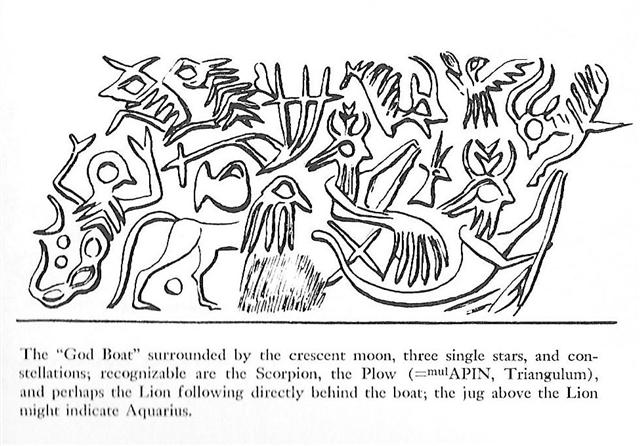
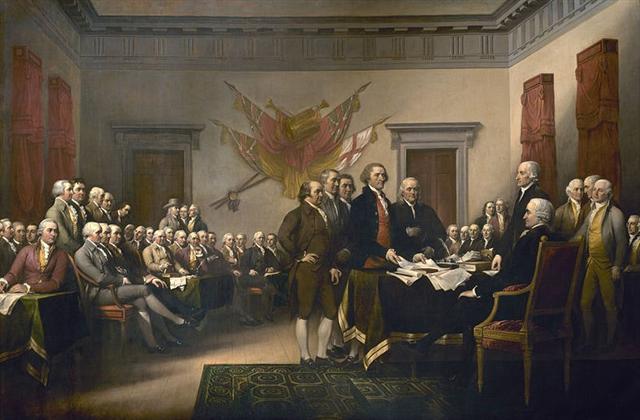
... Ira grew angry and quarreled
[he kakai] with Makoi. He said the
following (to him): 'You did not pay attention,
last-born, and you did not [tae] give the
(full) name. This is how it should be [Penei]:
the Manavai of Hau Maka of Hiva, in memory (mo
aringa ora) of the father, of his
dream soul'. Makoi replied, 'In Hiva the land
belongs to him - the land here is mine, not his
[tae oona]!' (E:21) |
| tu te rau hei |
ku
hakahonui raua |
kiore |
hokohuki |
te rau hei |
te moko e te
hokohuki |
 |
 |
 |
 |
 |
 |
 |
|
Cb6-12 |
Cb6-13 →
183 |
Cb6-14 |
Cb6-15 |
Cb6-16 |
Cb6-17 |
Cb6-18 |
|
CLOSE TO THE FULL
MOON: |
|
"July 11 (192) |
12 |
13 |
*115 → HIRO |
15 |
16 |
17 |
 |
|
HANGA
TAKAURE |
Barthel (The Eighth Island, p. 82):
"Tongariki, the important cult place in the bay of Hanga
Nui, which was permanently destroyed by the tidal wave of
1960, has an additional name that is difficult to understand.
Henga ('the one who is red' ?) was the fifth master of the
ancient king Oto Uta, and, as such, responsible for matters
relating to the sky (in its morning aspect?).
|
E:2 |
|
ko oto uta |
ariki motongi |
1 |
|
ko
tangaroa.a oto uta |
ariki
motongi |
2 |
|
ko
tiki hati.a tangaroa |
ariki
motongi |
3 |
|
ko
roroi.a tiki hati |
ariki
motongi |
4 |
|
ko
tuu kumā.a roroi |
ariki
motongi |
5 |
|
ko
ataranga.a tuu kumā |
ariki
motongi |
6 |
|
ko
harai.a ataranga |
ariki
motongi |
7 |
|
ko
taana.a harai |
ariki
motongi |
8 |
|
ko
matua.a taana |
ariki
motongi |
9 |
|
ko
hotu.a matua |
ariki
motongi |
10 |
|
ko
oto uta (ariki motongi 1): |
|
ko
moe hiva |
ariki maahu |
1 |
|
ko
tuku maura |
ariki
maahu |
2 |
|
ko ngerani |
ariki maahu |
3 |
|
ko po |
ariki
maahu |
4 |
|
ko
henga |
ariki maahu |
5 |
|
... The names in Manuscript E are
designed to carry meaning (or rather meanings). Obviously,
for instance, we can imagine a progression in time from
'sleeping in Hiva' (ko moe hiva) to the red colour of
awakening at dawn (ko henga) ... |
'Four prepare the rat (to be eaten)' [eha tunu kioe]
includes an inserted text segment. Insertions of this kind
will occur more frequent from now on. The rat is scorched (?
hakaputiti) and then cleaned (? hakapunenenene).
Tunu. To cook, to
fry; hare tunukai, kitchen. P Mgv.: tunu, id.
Ta.: tunu, to roast, to boil, to cook. Churchill.
... Sinu and sunu have shown senses which
imply contact with the naked fire, and that idea is largely
predominant in tunu, as exemplified by the
definitions of toasting, roasting, broiling, cooking on
embers. Disregarding the instances in which the word is
rendered by our general verb to cook we shall examine the
exceptions to this naked flame sense. It is used of boiling
in Samoa, Futuna, Niuē, and
Tahiti. It is significant that not one of these peoples had
taken so much as the first step in fictile art, and such
heating of water as was needed was performed by dropping hot
stones into the water in a wooden bowl ... Churchill 2.
All this happens in a 'land (where it is good) to eat this
rat with smacking noises' [henua mo opoopo o tau
kioe]. This could mean a land where food
is abundant, since the Polynesian rat was a favorite food
(of the people) (ME:19).
Pokopoko: 1. Womb. PS Sa.: po'opo'o, clitoris.
Mq.: pokopoko, pudendum muliebre. 2. Pokopoko
vae, footprints. 3. Concave, deep, ditch, mysterious;
pokopoko ihu, nostril (Ta.: poópoó
ihu); pokopoko ke, fathomless; pokopoko
taheta, concave. Hakapokopoko, to deepen.
Chuchill.
Popo. 1. To put
something into something else, for instance, stones in a
boat before going fishing. 2. To enter, to go in;
he-popo-mai kiroto ki te hare, he enters the house. 3.
Bundle, bag made of leaves; to make a bundle, a parcel, to
leave something in a bundle, a parcel. Pôpo: ball; to
make small balls: kete pôpó ki'ea, small basket with
balls of coloured earth. Popohaga, to dawn;
he-popohaga, dawn breaks (one does not say: i te
popohaga, but: i te po-á). Vanaga. 1. Waves which
strike one another. P Pau.: po-karakara, to strike
the hands together. Mgv.: po-kara, to clap the hands
loudly and gently in alternation. Ta.: popo, to clap
the hands. 2. To wrap up, to bundle, to preserve, to put in
safety. Pau.: hakapopo, to make into a ball. Mgv.:
popo, to take care of a fish net. 3. Pau.: popo,
ball, sphere. Mgv.: popo, ball. Ta.: popo, id.
Mq.: popo, id. Ha.: popo, id. Popohaga,
morning; popohaga atatehe, id. Mq.: popoui,
id. Popokai (popo 2 - kai 4): hare
popokai, store-house. Popopopo, to deteriorate. P
Mgv.: popopopo, entirely rotten, decayed. Mq.:
popo, worm-eaten, decayed. Poporakau (popo
2 - rakau 2) store, warehouse. Churchill.
Somewhat puzzling is the text of an ancient song with the
line ko tongariki a papa tata ika (Campbell
1971:259), 'Tongariki, donde se lavaban los cuerpos de las
victimas'). Either we are dealing here with a contamination
from the preceding additional names for Hanga Nui, or
the symbol of the rat has the same meaning as the symbol of
the fish ('rat' for those killed in a blood feud, compare
the heva motif, and 'fish' for those killed during
battle?)
|
 |
 |
|
kai |
ika |
North of the equator the symbol of the fish means death
(cfr 'going down to the fishes'), whereas the symbol of
the rat should mean returning up onto land again (to life) - because splashing
water droplets
will vivify the dry and barren Mother Earth. The sitting
figure in the kai type of glyph is, I guess,
splashing water from his cupped hand into his mouth -
i.e. he is not eating (kai) but drinking (unu)
in Polynesian fashion.
Tata. 1. To wash
something. 2. To go; he-tata-mai, to come, to appear,
to show up. Vanaga. Tátá
- see tá. Vanaga.
1. Agony, severe pain, apparent death. 2. Next, proximity;
hakatata, to
bring close together. 3. To strike;
tata ei taura, to
flog, to lash. 4. To wash, to clean, to soap, to rinse. 5.
To appear, to approach, to advance, to present;
hakatata, to
advance, to propose, to accost. Churchill.
Ika. 1. Fish. 2. In some cases, animal in general:
îka ariga koreh[v?]a, animal with the face of a
koreva fish (name given to horses when they arrived on
the island, because of the resemblance of their heads with
that of a koreva). 3. Victim (wounded or killed),
enemy who must be killed, person cursed by a timo and
destined to die; îka reirei, vanquished enemy, who is
kicked (rei). 4. Corpse of man fallen in war. Vanaga.
1. Fish, animal; ika rere, flying fish; ivi ika,
fishbone; mata ika, pearl. P Pau., Mgv., Mq.: ika,
fish. Ta.: ia, id. 2. Prey, victim, sacrifice; ika
ke avai mo, abuse; hakarere ki te ika, to avenge.
T Mgv.: ikaiara, to quarrel; ikatamamea, to be
angry because another has handled one's property. Mq.:
ika, enemy, what causes horror. Ma.: ika, the
first person killed in a fight. Mangaia: ika, a
victim for sacrifice. 3? matamata ika, snow. Ikahi,
to fish with a line, to angle. Mq.: ikahi, id.
Ikakato, to go fishing. Ikakohau, to fish with a
line, to angle. Ikapotu, cape, end of a voyage,
destination; ikapotu hakarere, to abut, to adjoin;
topa te ikapotu, id.; tehe oho te ikapotu, id.;
mei nei tehe i oho mai ai inei te ikapotu, as far as,
to. Ikapuhi, to fish with a torch. Mq.: ikapuhi,
id. Churchill.
Heva. To get upset, to become temporarily estranged
because of a violent internal pain; to be madly keen,
passionately fond of. Ga heva te va'e ihi, spread-leg
devotee (insulting term for 'woman'). Vanaga. (eva).
To be delirious, to rave, absurd (eheva, heva,
heheva). T Mgv.: eva, heva, frenzied,
delirious; stiff, said of a sick person; aeva, like a
madman. Mq.: eva, to be confused, perplexed. Ta.:
hevaheva, beside oneself. Churchill.
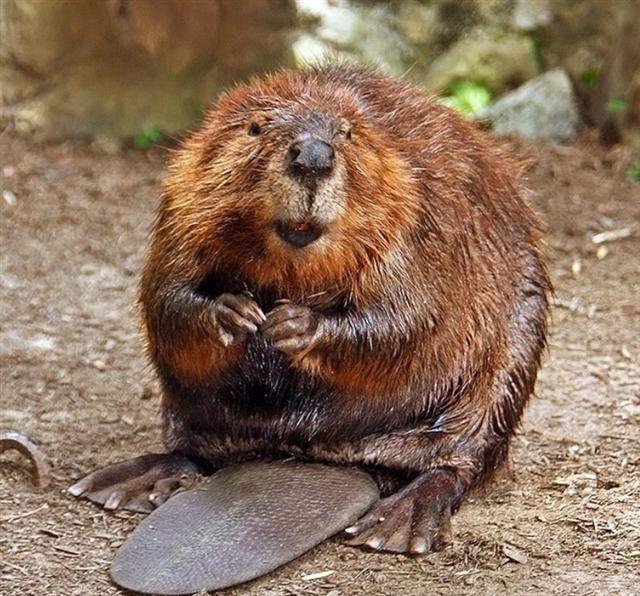
... Io
dwelt within the breathing-space of immensity. // The
universe was in darkness, with water everywhere. // There
was no glimmer of dawn, no clearness, no light.
And he began by saying these words,
That he might cease remaining inactive:
'Darkness, become a light-possessing
darkness.' And at once a light appeared. He then repeated
these self-same words in this manner,
That he might cease remaining inactive:
'Light, become a darkness-possessing
light.' And again an intense darkness supervened. Then a
third time He spake, saying:
'Let there be one darkness above. Let
there be one darkness below. Let there be a darkness unto
Tupua. Let there be a darkness unto Tawhito. A
dominion of light. A bright light.' And now a great light
prevailed.
Io then
looked to the waters which compassed him about, and spake a
fourth time, saying: 'Ye waters of
Tai kama, be ye separate. Heaven be formed.' Then the
sky became suspended. 'Bring forth
thou Te Tupua horo nuku.' And at once the moving
earth lay stretched abroad ...
Kio. 1. Defeated; one who has taken refuge in a house
or in a cave. 2. To come out a winner, to win, to be
victorious in war, in a quarrel, in a race: ku-kio-á te
taûa i a Miru, the war was won by the Miru; ku-kio-á
te toru vaka, the third boat won. Kiokio, to
smell of smoke, to smell smoky (of food). Vanaga. 1. Stick
wherewith to rake things into a heap. 2. Slave, servant,
inferior, of low estate, husbandsman. Hakakio, to
enslave, to reduce to subjection; tagata hakakio,
master. Mgv.: kio, a servant, slave, tiller of the
soil. 3. To discourage; also kioa. Kiokio,
foul smelling smoke. Mgv.: kio, kiohe, to
extinguish, to put out a light. 4. Pau.: kiokio, to
chirp. Mgv.: kio, id. Ta.: ioio, to cry, said
of a baby. Mq.: kiokio, to chirp. Sa.: 'io,
id. Ha.: ioio, id. 5. Mgv.: kio, little,
small, said of birds and animals. Mq.: kio, young of
birds. 6. Mgv.: kiokio, a fish. Mq.: kiokio,
id. 7. Mq.: kio, said of women and children who run
away to the mountain shelters in time of war. Ha.: kio,
to flee, to hasten away in fear. Churchill. Hakakio,
festival of thanksgiving. Barthel 2.
Immediately after Hanga Takaure the Explorers went to
Hanga Hoonu:
|
kua tupu te mea ke |
kotîa
hia |
te kava tu |
|
Tia.
(Tiha G) .To sew. T Mgv.: tia, to
prick, to pierce, to stick in. Churchill. Ta.:
tia, the lower belly. Mq.: tia-kopu,
pubes. Ma.: tia, the lower abdomen.
Tiahonu, to piece together. Mq.: tuhonu,
to mend, to patch. Ma.: tuhonu, to join.
Churchill. Mq.: tiaha, drinking cup. Ha.:
kiaha, a cup, a mug. Tikao, to dig
out, to disembowel. Ma.: tikaro, to dig
out of a hole. Churchill. KIA. s.
Haw., pillar or inner post of a house supporting
the roof, any kind of pillar or post, a mast of
a vessel; kia-aina, a supporter of the land, a
governor of a province. Marqu., tia, id.
Sam., ti'a, the stick used in
tanga-tia, a man's head (abusively);
tia-pula, taro-tops cut off for planting.
Sunda, tihang. Mal., tiang, a
pillar. Greek,
κιων,
a pillar, support of the roof, the identical
sense of the Polynesian usage of the word.
Liddell and Scott give no etymology or
connections of
κιων.
(Fornander) |
 |
 |
 |
 |
 |
|
Cb6-19 |
Cb6-20 |
Cb6-21 (136) |
(365
+ 137 = 529) |
Cb6-23 → 6 * 23 = 186 |
|
CLOSE TO THE
FULL MOON: |
|
"July 18 |
19
(200) |
TE ANAKENA 20 |
21 |
22 / 7 → π |
|
φ
Hydrae (160.3) |
no
star listed (161) |
VATHORZ POSTERIOR = θ Carinae
(162.1),
PEREGRINI = μ Velorum,
η
Carinae
(162.6) |
ν
Hydrae (163.1) |
no
star listed (164)
ALTAIR
(α Aquilae)
|
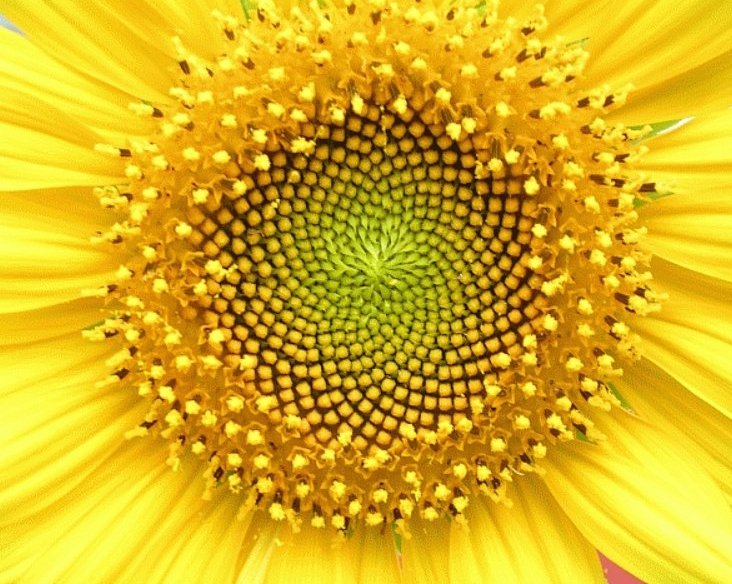
... This [η
Carinae] is one of the most noted objects in the heavens,
perhaps even so in almost prehistoric times, for Babylonian
inscriptions seem to refer to a star noticeable from
occasional faintness in its light, that Jensen thinks was
η. And he claims it
as one of the temple stars associated with Ea, or Ia, of Eridhu, the Lord of
Waters, otherwise known as Oannes,
the
mysterious human fish
and greatest god of the kingdom. |
|
HANGA HOONU |
... On the eighteenth day of the month
of July (Anakena) they went on from Hanga Takaure.
They climbed uphill, went on, and reached Poike. When
they arrived, they looked around and named (the place) 'Poike
A Hau Maka'. They climbed uphill, went on, and reached
Poike. When they arrived, they looked around and
named (the place) 'Poike A Hau Maka'. They climbed up
farther to Pua Katiki. When they arrived
there, they looked around and named (the place) 'Pua
Katiki A Hau Maka'. They came down from the height, from
the mountain, from Pua Katiki, and reached
Maunga Teatea. They looked around and gave the name 'Maunga
Teatea A Hau Maka'. They all descended, they all
came down from Pua Katiki. They
reached Mahatua, saw it, looked around, and gave the
name 'Mahatua A Hau Maka'. Then they went on and came
to Taharoa. They saw it, looked around, and gave the
name 'Taharoa A Hau Maka'.
Again they went on and reached Hanga
Hoonu. They saw it, looked around, and gave the name 'Hanga
Hoonu A Hau Maka'. On the same day, when they had
reached the Bay of Turtles, they made camp and rested. They
all saw the fish that were there, that were present in large
numbers - Ah! Then they all went into the water, moved
toward the shore, and threw the fish (with their hands) onto
the dry land. There were great numbers (? ka-mea-ro)
of fish. There were tutuhi, paparava, and
tahe mata pukupuku. Those were the three kinds of fish.
After they had thrown the fish on the
beach, Ira said, 'Make a fire and prepare the fish!'
When he saw that there was no fire, Ira said, 'One of
you go and bring the fire from Hanga Te Pau!'
One of the young men went to the fire, took the fire and
provisions (from the boat), turned around, and went back to
Hanga Hoonu. When he arrived there, he sat down. They
prepared the fish in the fire on the flat rocks, cooked
them, and ate until they were completely satisfied. Then
they gave the name 'The rock, where (the fish) were prepared
in the fire with makoi (fruit of Thespesia
populnea?) belongs to Ira' (Te Papa Tunu Makoi
A Ira). They remained in Hanga Hoonu for five
days. On the twenty-third day of the month of July
('Anakena'), they reached Rangi Meamea ...
| kiore |
 |
|
Cb6-24 (392
+ 139 = 531 = 18 * 29½) |
|
CLOSE TO THE
FULL MOON: |
|
Wings-27 (Snake → stream of water)
η
Octans (165.4),
ALKES
(Shallow Basin) =
α
Crateris
(165.6)
*124.0 = *165.4 - *41.4 |
|
Sept 2 (245
= 80 + 165) |
|
TE ANAKENA 23 (166 + 38) |
|
RANGI MEAMEA |
A 4th and final kiore came 4 days later, but
not named so by Metoro when he read the text for
Bishop Jaussen on Tahiti:
| tu te ika |
te moko e
te hokohuki |
kua tupu
te kihikihi |
ku kikiu |
te henua |
Te
hokohuki |
te moko |
|
Kihikihi, lichen;
also: grey, greenish grey, ashen. Vanaga.
Kihikihi, lichen T, stone T. Churchill.
The Hawaiian day was
divided in three general parts, like that of
the early Greeks and Latins, - morning,
noon, and afternoon - Kakahi-aka,
breaking the shadows, scil. of night;
Awakea, for Ao-akea, the plain
full day; and Auina-la, the decline
of the day. The
lapse of the night, however, was noted by
five stations, if I may say so, and four
intervals of time, viz.: (1.) Kihi,
at 6 P.M., or about sunset; (2.) Pili,
between sunset and midnight; (3) Kau,
indicating midnight; (4.) Pilipuka,
between midnight and surise, or about 3
A.M.; (5.) Kihipuka, corresponding to
sunrise, or about 6 A.M. ... (Fornander)
Kikiu. 1. Said of
food insufficiently cooked and therefore
tough: kai kikiu. 2. To tie securely;
to tighten the knots of a snare:
ku-kikiu-á te hereíga, the knot has been
tightened. 3. Figuratively: mean, tight,
stingy; puoko kikiu. a miser; also:
eve kikiu. 4. To squeak (of rats,
chickens). Kiukiu, to chirp (of
chicks and birds); to make short noises. The
first bells brought by the missionaries were
given this name. Vanaga. Kiukiu (kikiu).
1. To resound, to ring, sonorous, bell,
bronze; kiukiu rikiriki, hand bell;
tagi kiukiu, sound of a bell;
kikiu, to ring, the squeeking of rats;
tariga kikiu, din, buzzing;
hakakiukiu, to ring. Mgv.: kiukiu,
a thin sound, a soft sweet sound. 2. To
disobey, disobedience; mogugu kiukiu,
ungrateful; ka kikiu ro, to
importune. Churchill. |
 |
 |
 |
 |
 |
 |
 |
|
Cb6-25 |
Cb6-26 |
Cb6-27 |
Cb6-28 |
Cb6-29 (144) |
Cb7-1 |
Cb7-2 |
|
CLOSE
TO THE FULL MOON: |
|
ANA-TIPU-4 (Upper-side-pillar - where the
guards stood)
MERAK (Loin, not Lion) =
β
Ursae Majoris
(166.2),
DUBHE (Bear) =
α
Ursae Majoris
(166.7) |
11h (167.4)
χ
Leonis,
χ¹
Hydrae (167.1),
χ²
Hydrae (167.3)
*167.4 - *41.4 = *126.0 |
AL SHARAS (The Ribs) =
β
Crateris
(168.6) |
Al Zubrah-9 (Mane) /
Purva Phalguni-11 (First Reddish One - Fig
Tree)
ZOSMA
(Girdle, not Belt) =
δ
Leonis
(169.2),
COXA
(Hips) =
θ
Leonis
(169.4)
*169.4 - *41.4 = *128.0 |
φ
Leonis (170.0),
ALULA (First Spring of the Gazelle) =
ξ,
ν
Ursae Majoris
(170.5),
LABRUM =
δ
Crateris
(170.6) |
σ
Leonis (171.1),
λ
Crateris (171.6),
ι
Leonis,
ε
Crateris (171.9) |
γ
Crateris, π
Centauri (172.0),
κ
Crateris (172.5),
τ
Leonis (172.8)
GREDI (α Capricorni) |
|
... God created Eve from one of Adam's ribs
and therefore I at first tried to translate
the female (β)
star name Al Sharas with The Rib.
Although according to Allen this star was
plural: '...
β
... was one of Al Tizini's Al Sharāsīf,
the Ribs, - i.e. of the Hydra, - and the
first of the set.' Adam had, as I remember
it, another wife before Eve, viz. Lilith
...
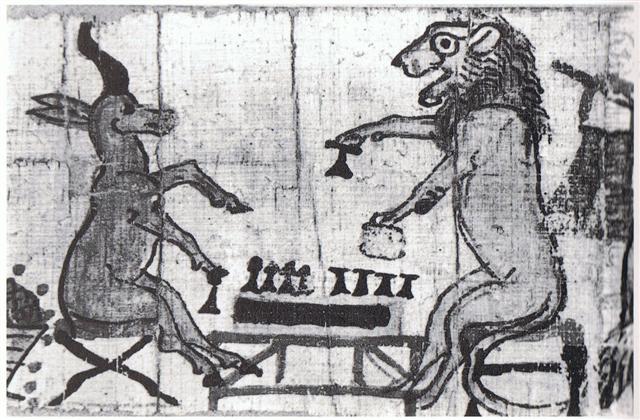 |
|
OROMANGA
... They all sat down and
rested [on the plain of Oromanga],
when suddenly they saw that a turtle had
reached the shore and had crawled up on the
beach. He [Ira] looked at it and
said, 'Hey, you! The turtle has come on
land!' He said, 'Let's go! Let's go back to
the shore.' They all went to pick up the
turtle. Ira was the first one to try
to lift the turtle - but she didn't move.
Then Raparenga said, 'You do not have the
necessary ability. Get out of my way so that
I can have a try!' Raparenga stepped
up and tried to lift the turtle - but
Raparenga could not move her. Now you
spoke, Kuukuu: 'You don't have the
necessary ability, but I shall move this
turtle. Get out of my way!' Kuukuu
stepped up, picked up the turtle, using all
his strength. After he had lifted the turtle
a little bit, he pushed her up farther. No
sooner had he pushed her up and lifted her
completely off the ground when she struck
Kuukuu with one fin. She struck downward
and broke Kuukuu's spine.The turtle
got up, went back into the (sea) water, and
swam away. All the kinsmen spoke to you
(i.e. Kuukuu): 'Even you did not
prevail against the turtle!' They put the
injured Kuukuu on a stretcher and
carried him inland. They prepared a soft bed
for him in the cave and let him rest there.
They stayed there, rested, and lamented the
severely injured Kuukuu. Kuukuu
said, 'Promise me, my friends, that you will
not abandon me!' They all replied, 'We could
never abandon you!' They stayed there
twenty-seven [27] days in Oromanga.
Everytime Kuukuu asked, 'Where are
you, friends?' they immediately replied in
one voice, 'Here we are!' They all sat down
and thought. They had an idea and Ira
spoke, 'Hey, you! Bring the round stones
(from the shore) and pile them into six
heaps of stones!' One of the youths said to
Ira, 'Why do we want heaps of stone?'
Ira replied, 'So that we can all ask
the stones to do something.' They took (the
material) for the stone heaps (pipi
horeko) and piled up six heaps of stone
at the outer edge of the cave. Then they all
said to the stone heaps, 'Whenever he calls,
whenever he calls for us, let your voices
rush (to him) instead of the six (of us)
(i.e., the six stone heaps are supposed to
be substitutes for the youths). They all
drew back to profit (from the deception) (?
ki honui) and listened. A short while
later, Kuukuu called. As soon as he
had asked, 'Where are
you?' the voices of the
stone heaps replied, 'Here we are!' All (the
youths) said, 'Hey, you! That was well
done!' ...
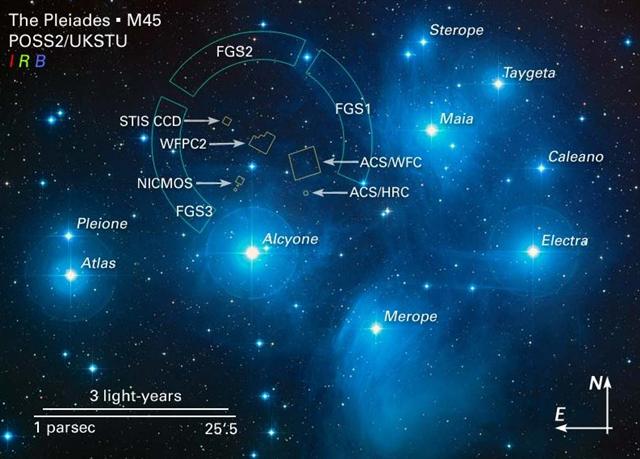 |
|
.jpg)



























